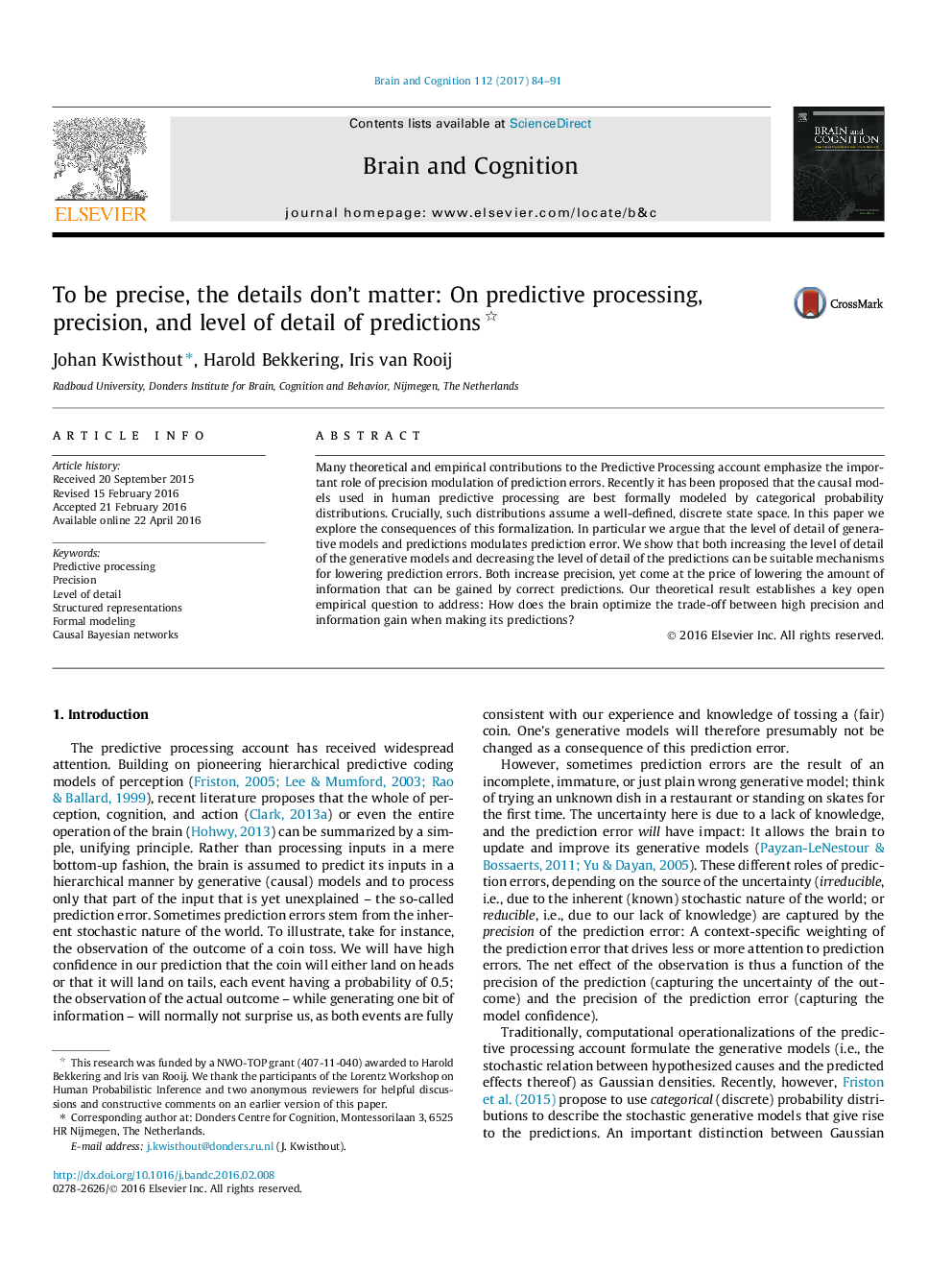| Article ID | Journal | Published Year | Pages | File Type |
|---|---|---|---|---|
| 5041103 | Brain and Cognition | 2017 | 8 Pages |
â¢We provide a Predictive Processing formalization based on causal Bayesian networks.â¢We propose six mechanisms for lowering prediction error.â¢We identify crucial conceptual, theoretical open problems in Predictive Processing.
Many theoretical and empirical contributions to the Predictive Processing account emphasize the important role of precision modulation of prediction errors. Recently it has been proposed that the causal models used in human predictive processing are best formally modeled by categorical probability distributions. Crucially, such distributions assume a well-defined, discrete state space. In this paper we explore the consequences of this formalization. In particular we argue that the level of detail of generative models and predictions modulates prediction error. We show that both increasing the level of detail of the generative models and decreasing the level of detail of the predictions can be suitable mechanisms for lowering prediction errors. Both increase precision, yet come at the price of lowering the amount of information that can be gained by correct predictions. Our theoretical result establishes a key open empirical question to address: How does the brain optimize the trade-off between high precision and information gain when making its predictions?
